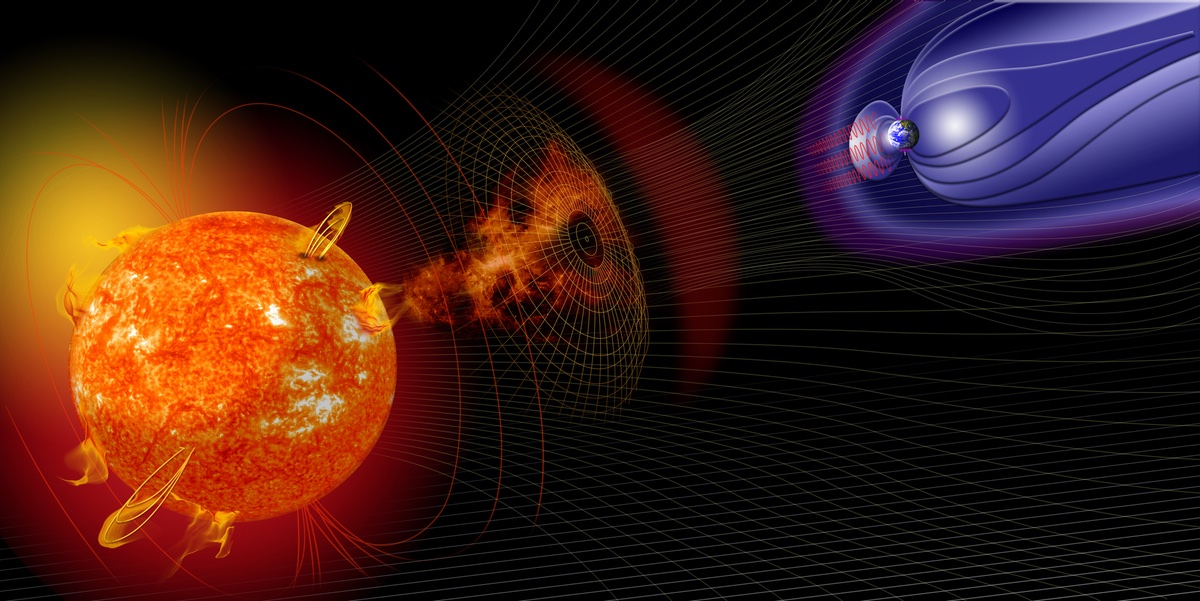WASHINGTON — The House is slated to pass a space weather bill this week, culminating a five-year effort to turn a put elements of a space weather strategy and action plan into law.
A schedule released Sept. 11 by House Majority Leader Steny Hoyer (D-Md.) listed the Promoting Research and Observations of Space Weather to Improve the Forecasting of Tomorrow (PROSWIFT) Act as one of several bills scheduled to be considered under suspension of the rules Sept. 16. That method is used for the expedited passage of bills considered noncontroversial, and requires two-thirds approval of members voting for passage.
The bill, S. 881, passed the Senate by unanimous consent July 27. Approval by the House would send the bill to the president to be signed into law.
At a Sept. 9 meeting of a National Academies committee, a staffer for one of the proponents of the bill in the House said he was optimistic the bill would pass soon. “We’re working to pass that as soon as possible here in the House,” said Jeff O’Neil, legislative director for Rep. Ed Perlmutter (D-Colo.), who sponsored a version of the bill that the House Science Committee favorably reported in January. “The goal for the next couple of months is to get this signed into law.”
The bill is intended to codify elements of a space weather action plan and strategy first published in 2015 to identify roles for various agencies to conduct research related to space weather, monitor solar activity, provide warnings of storms that could affect satellites and terrestrial infrastructure, and respond to such events.
The PROSWIFT Act states the roles of those agencies for space weather, and makes the Office of Science and Technology Policy the coordinator. It creates both an interagency working group as well as an outside advisory group with representatives from academic, industry and other non-government representatives.
It also directs a review of the existing space weather strategy by the National Academies. “We think that it’s good to have another, independent set of eyes to look at it and provide some additional validation,” O’Neil said.
The bill also establishes a commercial space weather data pilot program to be led by the National Oceanic and Atmospheric Administration, modeled on its earlier pilot program for purchasing terrestrial weather data from commercial satellites. That provision, O’Neil said, was a priority of Rep. Frank Lucas (R-Okla.), ranking member of the House Science Committee.
Efforts to pass a bill like the PROSWIFT Act date back to 2016, when Sen. Gary Peters (D-Mich.) introduced a space weather forecasting bill, co-sponsored by Sen. Cory Gardner (R-Colo.) While that bill failed to pass, they reintroduced a similar bill in 2017 that the Senate approved by unanimous consent.
The House worked on a companion version of the bill, with Permutter seeking bipartisan support. An early supporter in the House was then-Rep. Jim Bridenstine (R-Okla.), who became the administrator of NASA in 2018. Later, Rep. Mo Brooks (R-Ala.) co-sponsored the bill.
The bill encountered problems in the House in 2018, though, when then-Rep. Lamar Smith (R-Texas), chairman of the House Science Committee at the time, sought to modify the bill to give the National Space Council, rather than OSTP, the role of coordinating space weather policy. The committee favorably reported that modified version of the bill, O’Neil recalled, “but at the end of the day in 2018 we couldn’t get completely over the finish line.”
A new Congress, with the House now in Democratic hands, allowed for what O’Neil called for “a fresh look” at the bill and updating it based on discussions over the last few years, including the new name of the PROSWIFT Act. There were further discussions between the House and Senate after the House Science Committee approved the bill to make final adjustments into the version that the Senate passed in July and is now pending approval in the House.
“I think this is going to be a really important thing for us to get done,” he said, “even though it’s taken us five, six years to do it.”
